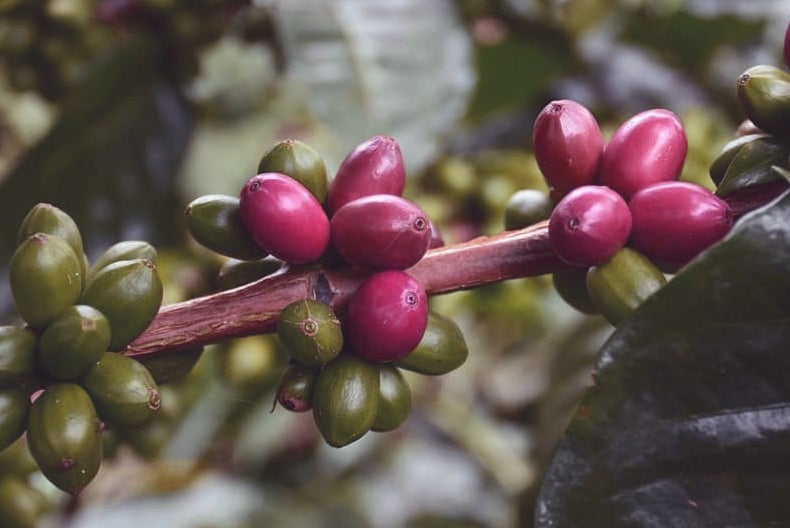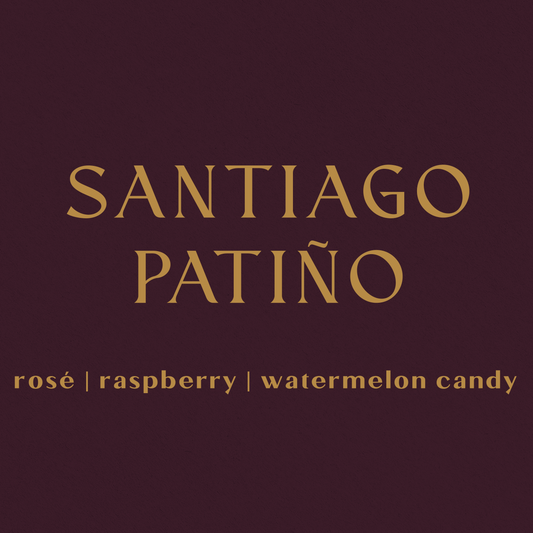
Papayo
Papayo Coffee Variety
1. Origin and Genetic Background
The Papayo varietal is a relatively rare and regionally specific mutation of Arabica coffee, most commonly found in Colombia, particularly in the Huila department. Its name derives from the unique elongated shape of its cherries, which resemble a small papaya—hence "Papayo."
While its full genetic lineage hasn’t been exhaustively documented, Papayo is often considered a natural mutation or spontaneous hybrid from existing cultivars in the region, most likely influenced by Typica or Bourbon lineage given its elongated form, growth pattern, and cup profile. Some producers report that it may have connections to Ethiopian landrace varieties, though this remains speculative. Because of its rare genetic traits and limited cultivation, it is typically found only on smallholder farms or experimental plots rather than as a widely commercialized cultivar.
2. Agronomic Characteristics
Papayo is recognized by its distinct tall, upright stature and its elongated cherries and seeds, setting it apart visually from other common varieties in Colombia like Caturra or Castillo. It is generally cultivated at high elevations, often between 1,700 and 2,100 meters above sea level, where cool temperatures and rich volcanic soil allow for slow cherry maturation and denser seed development.
The plant is relatively low-yielding, which discourages widespread planting from commercial producers focused on volume. It also exhibits moderate resistance to diseases but is not as robust as genetically engineered varieties like Castillo. As a result, Papayo is most often cultivated by producers who prioritize cup quality over quantity—particularly for micro-lots destined for the specialty coffee market.
Due to its slower growth and lower yield, it is usually harvested selectively and processed with extra care—often through washed, honey, or anaerobic fermentation methods to accentuate its cup profile.
3. Cup Profile and Flavor Attributes
Papayo is prized for its complex, high-acid, and fruit-forward profile, which often includes tropical fruits, citrus, floral notes, and a tea-like body. Tasters frequently describe it as clean, bright, and expressive, with high cup clarity and layered aromatics. Some lots have exhibited flavor notes such as:
Passionfruit, papaya, guava
Mandarin orange, lime, and stone fruit
Hibiscus, jasmine, and honey
The variety’s elongated seed contributes to unique roasting behavior, which can affect development time and heat transfer. Roasters often approach Papayo like a Geisha or other delicate cultivar—using lower charge temperatures and gentler development curves to protect its florals and acidity.
Its distinctiveness and rarity have made Papayo increasingly desirable in specialty coffee competitions, direct trade relationships, and micro-lot offerings from experimental producers in Huila and surrounding regions.
4. Cultivation and Availability
Papayo remains extremely rare in the global coffee market. It is cultivated almost exclusively in Colombia’s Huila region, and even there, it represents only a fraction of a percent of total production. The variety is typically grown by progressive smallholder farmers, some of whom experiment with fermentation techniques (e.g., carbonic maceration, extended anaerobic fermentation) to highlight Papayo’s aromatic complexity.
Because of its low production volume and the care needed to cultivate and process it, Papayo coffees are most often sold as nano-lots or competition lots, rather than as scalable green coffee offerings. Importers who work with Papayo typically do so through direct relationships with producers and exporters focused on experimental varietals.
Examples of known producers include Wilton Benitez, who has processed highly experimental Papayo lots using bio-innovation and controlled fermentation, helping elevate the cultivar’s visibility among specialty buyers.
5. Outlook and Role in the Specialty Market
While Papayo is unlikely to become a widespread commercial cultivar due to its low yield and high maintenance, its value lies in its unique flavor expression and exclusivity. It plays an important role in pushing the boundaries of what Colombian coffee can be, especially for:
Roasters seeking rare, high-impact lots
Importers looking to showcase terroir-driven Colombian micro-lots
Coffee competitions and cupping events
Innovation in fermentation and processing techniques
Papayo’s continued cultivation will likely depend on specialty premiums, direct trade partnerships, and the willingness of producers to invest in quality over yield. As experimental processing and micro-lot marketing continue to grow, Papayo may carve out a lasting place in the ultra-premium segment of the specialty coffee world.
Shop Papayo Cultivars
-
Santiago Patiño
Regular price From $31.00 USDRegular priceUnit price / per

